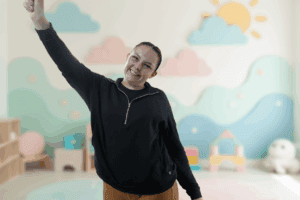The World Happiness Report ranks countries according to the happiness of its residents, and placed SA in 103rd place out of 149 countries.

The Covid-19 pandemic has caused a global spike in sadness, worry and anger, with more than 40 of the 149 countries featured in the latest World Happiness Report exhibiting significantly higher rates in 2020 than in years gone by.
And while South Africa was not one of them – and actually scored slightly better in this year’s report than in last year’s – the country still found itself ranked towards the bottom of the barrel.
Published annually by the United Nations sustainable development solutions network, the World Happiness Report ranks countries according to how happy those who live there are.
It uses data collected via the Gallup World Poll, which typically sees around 1 000 people per country interviewed and asked about – among others – how often they smile, laugh and experience enjoyment; as well as how often they feel worry, sadness and anger.
The 2021 report – which covers the year 2020 – was released last Friday and saw Finland ranked first once again, with Afghanistan receiving the lowest ranking. South Africa was ranked 103rd – six spots up from last year.
A total of 38 African countries featured in the 2021 report, seven of which found themselves in the lowest ranked 10.
The focus of the latest report was on how people across the globe had fared against the backdrop of Covid-19 and, said the authors, the best performing countries had higher levels of trust and lower levels of inequality.
“Both of which helped them to keep death rates low and social cohesion high, and hence to maintain their favourable positions,” they added.
They highlighted how the pandemic had caused “greater economic insecurity, anxiety, disruption of every aspect of life, and, for many people, stress and challenges to mental and physical health”.
“Mental health has been one of the casualties both of the pandemic and the resulting lockdowns. As the pandemic struck, there was a large and immediate decline in mental health in many countries worldwide,” they said.
“After the sharp initial decline in mental health, there was a considerable improvement in average mental health, though not back to where it started.
“But a significant proportion of people had mental health that was persistently and significantly lower than before Covid-19.”
Professor Ashraf Kagee, from Stellenbosch University’s department of psychology, said yesterday there were different dimensions to the anxiety people were feeling at the moment.
“There is worry and anxiety around becoming infected and becoming sick yourself, as well as around becoming infected and passing it on to loved ones,” he said.
Kagee also said the lockdowns had triggered concerns relating to social isolation. “Human beings are social animals, we need to interact with people,” he said.
He said people who lived alone were especially vulnerable during this time, as were those who lived in homes where there were interpersonal tensions.
Kagee said economic anxiety, too, was a serious concern in the current climate.
“The other very, very important thing we must always keep in mind is economic anxiety – the fear of losing your job or your business closing down,” he said.
Kagee said it was important to keep in touch with friends and family members during this time.
“People with pre-existing mental health conditions – especially depression – also require support,” he added.
Dr Linda Blokland, the acting head of department at the University of Pretoria’s Student Counseling Unit, also honed in on social isolation.
“For many people, they’re separated from their families and loved ones.
“Some of us are fortunate enough to have access to the internet but it’s not the same as being in somebody’s presence.
“People are not always as open over the internet as they might be and it doesn’t promote the kind of intimacy we might want.”
She said it was important to maintain a routine during this period as well as to exercise and to maintain a healthy diet.
“And it’s very important to maintain contact with people you normally do, such as work colleagues,” she added.
For more news your way, download The Citizen’s app for iOS and Android.






